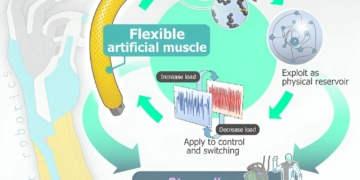
Two years after COVID-19 emerged, researchers have provided three cost-effective actions to help decision-makers prevent future pandemics by stopping “spillover” of diseases from animals into humans: better surveillance of pathogens, better management of wildlife trade and hunting, and reduced deforestation. The annual costs of these “primary pandemic prevention” actions (~$20 billion) are less than 5% of the lowest estimated value of lives lost from emerging infectious diseases every year, less than 10% of the economic costs, and provide substantial co-benefits. The research by 20 experts, published in Science Advances, was led by Dr. Aaron Bernstein, director of the Center for Climate, Health, and the Global Environment at Harvard T.H. Chan School of Public Health.
“If COVID-19 taught us anything, it is that testing, treatments, and vaccines can prevent deaths but they do not stop the spread of viruses across the globe and may never prevent the emergence of new pathogens. As we look to the future, we absolutely cannot rely on post-spillover strategies alone to protect us,” said Dr. Bernstein of Harvard Chan C-CHANGE. “Spending only five cents on the dollar can help prevent the next tsunami of lives lost to pandemics by taking cost-effective actions that stop the wave from ever emerging, instead of paying trillions to pick up the pieces.”
Today, 3.3 million people are expected to die each year from viral zoonotic diseases. The estimated value of these lost lives is—at a minimum—$350 billion with an additional $212 billion in direct economic losses. This amount is based on lives lost from every new viral zoonosis—diseases that “spillover” into humans—since 1918 that killed at least 10 people.
According to the authors, preventing spillover at the source is rarely addressed when policymakers and multilateral organizations discuss pandemic risks—despite the fundamental role spillovers play in spreading emerging infections. To address this, the paper recommends revising the World Health Organization’s “phases of infectious disease emergence” to include a specific phase for spillover. They further coin a new paradigm—”primary pandemic prevention”—to define actions that stamp out new diseases before they spread, rather than actions that address disease outbreaks after they occur.
“Resources placed into reducing deforestation are an investment to prevent future epidemics, but also to mitigate current threats, such as malaria and respiratory diseases associated with the burning of the forest,” said Marcia Castro, Andelot professor of demography and chair of the Department of Global Health and Population at Harvard Chan School. “Making these investments in prevention brings returns to human health, to the environment, and to economic development.”
In addition to preventing pandemics by suppressing the emergence of novel and well-known pathogens, the actions included in the paper help avoid carbon dioxide emissions, conserve water supplies, protect Indigenous Peoples’ rights and conserve biodiversity. They also prevent indirect damages not included in the cost estimates, such as psychological harms from lost jobs, lost relatives, or social isolation, delayed medical treatments, and loss or delays of education.
Primary prevention actions and recommendations include:
- Better surveillance of pathogens that may spill from animals to people
- A global viral discovery project should be developed to target where prevention activities should be focused geographically. This library can help quickly identify pathogens when they emerge and accelerate our ability to develop tests and vaccines rapidly and deploy them widely.
- More well-trained veterinarians are needed, especially in spillover hotspots, to monitor for emerging diseases and prevent spillover from wildlife or livestock into people.
- Better management of wildlife trade and hunting
- Inadequate monitoring and surveillance of the wildlife trade enables zoonotic disease emergence. An increased budget and personnel for the Convention on International Trade in Endangered Species of Wild Fauna and Flora (CITES), the World Organization for Animal Health, and national agencies charged with monitoring animal importation to conduct research, monitoring, and enforcement is necessary to reduce risky trade.
- Reduction of deforestation
- Deforestation, particularly in the tropics, brings people into contact with animals as they enter forests to clear them for agriculture or timber, build roads, or work in mines. It creates forest edges that facilitate contact between people and viral reservoir hosts.
- Mitigating Amazonian deforestation is a cornerstone of primary pandemic prevention. Smaller forests are also important sources of emergent pathogens due to their proximity to densely populated settlements. Tying conservation measures to investments in healthcare system strengthening can support communities living in and around forests.
- Agriculture must be reformed to minimize, or ideally reverse, land conversion, and demand for less sustainable food must also be curtailed.
In 2021, a task force led by Dr. Bernstein found that the spillover of pathogens with the potential to cause pandemics occur from livestock operations; wildlife hunting and trade; land-use change and the destruction of tropical forests; expansion of agricultural lands, especially near human settlements; and rapid, unplanned urbanization. Climate change is also shrinking habitats and pushing animals on land and sea to move to new places, creating opportunities for pathogens to enter new hosts. The report provides recommendations for research and actions to forestall new pandemics that have largely been absent from high-level discussions about prevention, including a novel call to integrate conservation actions with strengthening healthcare systems globally.
A new report from Harvard and international experts outlines the strong scientific foundations for taking actions to stop the next pandemic by preventing the spillover of pathogens from animals to people. The report provides recommendations for research and actions to forestall new pandemics that have largely been absent from high-level discussions about prevention, including a novel call to integrate conservation actions with strengthening healthcare systems globally.
New report from Harvard and global experts shows investments in nature needed to stop the next pandemic
Aaron S. Bernstein et al, The costs and benefits of primary prevention of zoonotic pandemics, Science Advances (2022). DOI: 10.1126/sciadv.abl4183. www.science.org/doi/10.1126/sciadv.abl4183
Harvard T.H. Chan School of Public Health
Citation:
Research shows actions to prevent pandemics cost 5% of lives lost every year from emerging infectious diseases (2022, February 4)
retrieved 4 February 2022
from https://medicalxpress.com/news/2022-02-actions-pandemics-lost-year-emerging.html
This document is subject to copyright. Apart from any fair dealing for the purpose of private study or research, no
part may be reproduced without the written permission. The content is provided for information purposes only.














